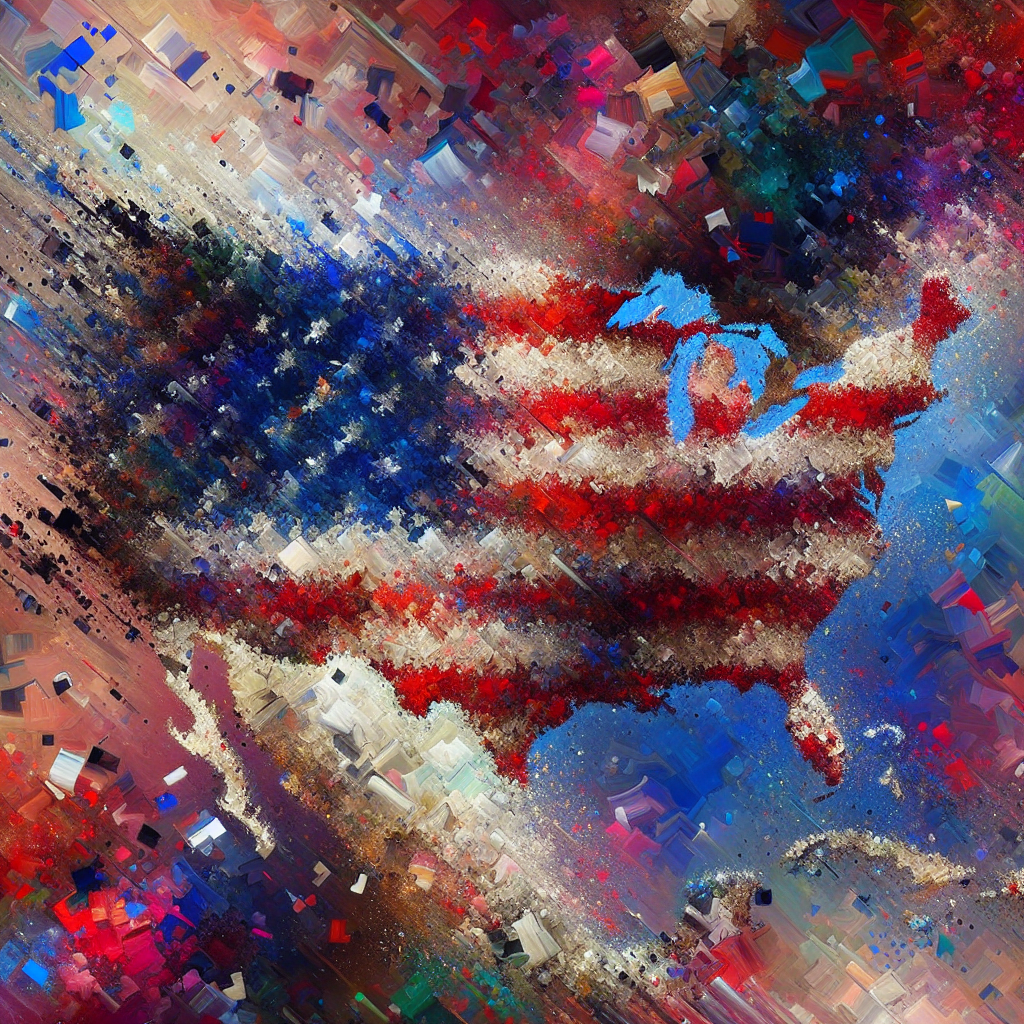The Empire's New Clothes: A Spirited Dive into Nationalism, Empire Decadence, and Russia's Economic Limbo
Ah, nationalism – that fiery, impassioned, and often divisive sentiment that has shaped the contours of modern history. It’s like a high-octane fuel; it can propel a nation to independence or incinerate the very fabric of an empire. And when it comes to the grand stage of empire dissolution and economic stagnation, few tales are as compelling and intricate as those of the British Empire, the French colonial endeavors, and the saga of Russia's enduring struggle.
A British Farewell to Arms
Let’s start with the British Empire, a colossus that once straddled the world, its tendrils stretching across continents. But here's the zesty twist: when nationalism started its relentless march across the British-held territories, instead of clenching its fists, Britain often opted for a handshake. Yes, there were exceptions, but by and large, Britain didn’t drag itself and its former colonies through the destructive quagmire of protracted conflict. It negotiated, it withdrew, and in doing so, it arguably preserved a measure of dignity and influence. It's almost as if the British Empire looked at the rising tide of nationalist fervor and decided, "Better to part as friends than enemies." A pragmatic choice, or a reluctant admission of a changing world? Either way, it's a fascinating chapter in the narrative of empire.
French Follies and Fighters
Contrast that with France, which clung to its colonial possessions with a tenacity that was both admirable and tragic. In Vietnam and Algeria, France fought tooth and nail, a testament to the belief in the indomitable French spirit and the mistaken notion that force could quell the fire of nationalism. Spoiler alert: it couldn’t. Both conflicts ended in French defeat, leaving a legacy of bitterness and trauma. France's attachment to its colonies, even in the face of mounting opposition and changing global sentiments, reveals the complexity of imperial attachment and the painful process of letting go.
A Russian Riddle Wrapped in a Mystery
Now, let’s pivot to Russia. Oh, Russia – an empire, a superpower, but also a cautionary tale of economic stagnation and missed opportunities. Unlike the British or the French, Russia's empire was primarily land-based, contiguous – a vast expanse held together by the sheer might of the Red Army. Initially, under Stalin, there was a rebuilding, a sense of momentum. But as decades rolled on, the Soviet Union found itself increasingly lagging behind the West economically.
The compounding effect of slower growth rates became a noose tightening around the Soviet, and later, the Russian economy. Fast forward to the present, and Russia finds its standard of living trailing behind Mexico's. It's a stark reminder that military might and geopolitical influence don't necessarily translate to economic prosperity. Russians grapple with a paradox; endowed with vast natural resources and a rich cultural heritage, they’re caught in a web of economic malaise, unable to harness their potential fully.
The Tale of Two Strategies
The British and French experiences highlight two different strategies in dealing with the erosion of empire by the forces of nationalism: negotiation versus confrontation. Britain’s relatively graceful exit from its empire building ambitions might have spared it some of the prolonged conflicts and economic drain experienced by France. The British approach underscores the importance of recognizing the winds of change and adapting sail accordingly. In contrast, France’s determined but ultimately futile efforts to retain its colonies underscore how refusal to adapt can lead to greater losses, both materially and in terms of national prestige.
Russia’s Economic Conundrum
When it comes to Russia, the story isn't just about the loss of empire but about what happens when a superpower finds itself economically adrift. Despite its geopolitical might and natural wealth, Russia's economic trajectory showcases the challenges of transitioning from a centralized, state-controlled economy to one that can compete on the global stage. The result is a nation still searching for its economic footing, caught between past glory and an uncertain future.
For anyone looking to delve deeper into the historical and economic context behind these narratives, consider exploring the following resources:
- The fall of the British Empire: Post-colonial transitions
- The Algerian War: A case study in French decolonization
- Russia’s economic transition: From Soviet past to present challenges
As we reflect on these tales of empires and economies, it becomes clear that nationalism, economic policy, and the willingness to adapt are crucial factors in the fate of nations. The British Empire, the French colonial struggles, and Russia’s ongoing economic challenges offer invaluable lessons in the importance of recognizing when an era has passed and the necessity of forging new paths towards prosperity.
In the end, the empire's new clothes might not be as glamorous as its imperial past, but in the fabric of nationalism and the pursuit of economic stability, there's potential for a future that, while different, could be just as dignified and prosperous.
Related News
- The Ripple Effects of Desperation: A Deep Dive into Japan’s Historical Decision and Economic Downfall
- Russia's Missed Road to Prosperity: A Journey Through Its Woes and What Could Have Been
- Navigating the Tightrope: The Delicate Dance of Diplomacy with Russia
- Smoot-Hawley Tariff and the Unintended Dance of Diplomacy
- Navigating the Rough Seas of Global Politics: The Maritime Order Strategy
